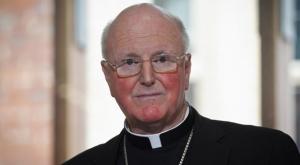To understand anyone you have to ask how do they understand themselves. But now Americans prefer to sooth their anxiety about Islamic radicalism with the violence of our own rhetoric, the puny ineffectiveness of openly carrying weapons and satisfying our lust for revenge by attacks on innocents and an occasional report of a successful drone strike.
Below I’ll try to put in systematic insights from a number or researchers, journalists, and activists. Graham Ward, Farah Pandith, and our own Dallas area Muslim leaders are among them.
Let’s start with a question: why did ISIS launch attacks on Paris? Why did al-Qaeda attack New York, Washington DC, Madrid and London? Just creating terror doesn’t necessitate these kinds of targets. For that it is easier to blow up bombs in Baghdad (an endless succession) or murder school girls in Nigeria. Indeed, after 9/11 it was clear that attacks on major Western powers strengthened local intelligence and the likelihood or military repercussions.
So why an attack with no military advantage? Why should ISIS launch attacks that do not strengthen the economy of their territories, and do not militarily weaken potential enemies? Clearly they are not acting as conventional military players in a game to establish political power.
Except in this: They have learned from the history of empire that public relations are as important as military and economic strength if you want to expand. And because their central message is about a conflict between civilizations, or more accurately what it means to be civilized, PR is served not merely by winning tactical battles for control of territory, but also by making perfectly clear to potential followers world wide where the real battle lies.
In other words the space ISIS wants to dominate is the public imagination.
Among its enemies it wants fear, because fear and anger always lead to tactical and strategic mistakes. Among potential allies it wants respect and prestige. An earlier generation of religious leaders sponsored cathedrals, great mosques, and universities to gain prestige. Terrorists create large dramatic acts of terror. These are their calling card among those who they recruit.
But establishing credibility takes more than a flashy, violent, PR campaign. It takes more than terror.
To capture the religious imagination ISIS must use all sources of religious identity and validity. They have people constantly writing Islamic legal rulings that make reference to the Qur’an, the Traditions of the Prophet, and to classical legal texts. In other words they seek legitimacy by placing themselves within the Islamic intellectual and theological tradition as reformers restoring the original meaning of Islam. This is relatively easy because many young Muslims, like most young Christians, Hindus, Buddhists, and Jews don’t actually know much about their own religion. Many more are disaffected, even enraged with their situation and are looking for alternatives. “Sheik Google” (as I heard at a recent seminar) is where they go for answers, and ISIS is there to provide those answers. (David Martin Jones wrote about this in “Cybercaliphate Rising,” as has Farah Pandith).
Similarly ISIS places itself firmly within the form of the Islamic tradition of worship. They strictly enforce the 5 times a day prayer and attendance at the mosque on Friday. At least outwardly they are the most pious of the pious. They position themselves as the defenders of true Islam against its enemies. So to gain support from conservative Sunni Muslims they relentlessly destroy all the supposed enemies of true Islam, meaning both Islamic sects and of course Christians and Jews. They place themselves as Islamic puritans in a corrupt and impure world. So they attack the wealthy Sunni elites, and are particularly enemies of Saudi Arabia. Because these Muslim elites are both resented and regarded as morally corrupt.
But it isn’t just the religious enemies of Islam they attack. In their world (A worldview most forcefully articulated by Sayyid Qutb in Milestones) there are really only two kinds of people. Those who are Muslim and submit with our reservation to God’s will. And those who are caught up in jahilayya, or darkness, ignorance, and atheism. It is that dark ignorance that is the real enemy of not just Islam, but all humankind.
And that is why they attack Paris. Because it is the symbol of that darkness. That is why they attack Beirut, because it is a symbol of diversity. If you are a young, angry Muslim these are places you resent because they have all the things you want but cannot have, and you hate them because you cannot have them.
And this rational then provides a long list of accessible local targets for the self-radicalized. Individuals don’t need instructions. Like the couple in San Bernadino they just need to identify their own local heart of darkness, someplace against which they have a real or imagined grudge. And everybody has such a place in their heart.
Most importantly ISIS and similar groups place themselves as restorers of Islam’s glorious past. This is why their leader claims to be the new Caliph. Islam hasn’t had a caliph since 1924. It has been a fragmented, weak, religious group with no unity and no focus. The continued losses, nakbah, or disaster in Arab, in wars against little Israel are the proof of this. The vast prestige projects of Saudi Arabia and the Gulf States, benefiting a minuscule Arab elite and their morally corrupt Western friends bring bring neither Islam or Muslims any glory. The great glass towers enrich foreign workers while 90% of Arabs live in dismal poverty. They simply drive home the centuries of failure. ISIS may live in and create a world of constant violence and hardship, but this can appear glorious compared to the iniquity of wealth. It has a different, and distinctly religious kind of prestige. And thus it claims to have restored the true caliphate, also born in hardship, and thus restored Islam as a force to be reckoned with in the world.
We need to remember that the early Caliphs called themselves “The Shadow of God on Earth.” Their power and prestige came because they represented God on earth. Both God as judge, and God as the giver of all good things. God as the punisher of the wicked, and God who rewards the righteous. And this is what Abu Bakr al-Baghdadi does. He draws his prestige from his ability to execute judgment on the wicked and to reward those who follow him.
Two things we need to remember:
None of these are unique to ISIS. These are the methods, including terror, that have been used by many upstart religious groups in order to establish themselves. Terror has long been part of the language of war. Let’s remind ourselves that the early Protestants and later Puritans terrorized their Catholic neighbors, attacking and destroying Catholic symbols and icons, killing Catholics who didn’t covert, and in particular engaging in the wholesale slaughter of Jews.
And by the way, to re-establish its power in Europe the Catholic Church did the same kind of thing to Protestants. Hindu nationalists are doing the same thing in India right now – targeting Muslims and Christians. And yes, on both sides beheading people and burning people at the stake. And in Burma Buddhists are slaughtering Muslims and driving Christians out of the country. And in the Central African Republic Christian militias are burning Muslim villages, beheading Muslims, and creating a growing reign of terror. But NONE of these groups regard themselves as terrorists. In each case they are trying to create religious purity and thus prestige. ISIS is simply the latest and possibly most dangerous form of religious extremism. It isn’t unique, so we shouldn’t allow it to mystify us.
Secondly, each of these approaches used by ISIS, as well as others I haven’t mentioned, appeals to slightly different constituency among those who are angry and disaffected. ISIS doesn’t just want to recruit violent jihadists. It wants geeks, it wants both men and women, it wants engineers and doctors. So it is carrying on a complex multi-level marketing campaign to get as big a share of the religious extremist market as it can. That campaign is being carried out with obvious effect over the internet and through a network of agent/recruiters around the world. Our problem is that we don’t see the whole campaign, just the terror.
How can we stop ISIS?
We must destroy its prestige. And that means it must begin to lose its battles, and its leaders have to be removed. And we have to do these things in a way that doesn’t prove its assertion that we are immoral and oppressive. Which is a very complex ethical issue: How do you engage in an ethical war with a ruthless and unethical enemy whose leaders have a better understanding of public relations battle ground than you have?
We need to undermine their claim to represent real Islam. This is something that the Muslim community must undertake. Muslims in the West need religious leaders who are educated and winsome and speak to modern Western young people from Muslim backgrounds.
This requires non-Muslims as partners. Each time we identify ISIS with “real” Islam for polemical purposes we strengthen ISIS by affirming their rhetoric. Each time we attack American or Western Muslims or immigrants with the claim that they are all jihadists our flagrant anxious lie simply affirms ISIS propaganda. Our Christian hate and fear toward our neighbors is the most powerful tool in the ISIS propaganda arsenal.
Western nations, and pioneering businesses, need to take positive steps to lessen the vast inequality in the Middle East that breeds anger and resentment. Our relationship to the vast oil wealth in the Middle East must be reconsidered – and can be now that the US is effectively independent of that oil. Our alliances need to be predicated on real steps taken by Saudi Arabia and the Gulf States to address not just security concerns (where they have proven useless in any case as we see in Yemen) but more importantly economic development. Money from the Middle East needs to find its home employing Arabs rather than purchasing property in Mayfair, Qatar, New York, Miami, and Lost Angeles.
Young Muslims need positive ways to use their energy and affirm their Islamic identity. This again is in part the responsibility of Muslim communities. But also must involve non-Muslim partners, particularly in at risk communities. We need to see Muslim youth as “at risk,” but with the understanding that the risk isn’t gangs and drugs, but radicalism. Only a partnership of schools, community service agencies, mosques, and non-Muslim religious institutions showing respect for Islam can break into that cycle. The ISIS recruiting network needs to be broken at its roots by overwhelming it with positive options for Muslim young people.
Right now Americans prefer to sooth their anxiety about Islamic radicalism with the violence of their own rhetoric, the puny ineffectiveness of openly carrying weapons and satisfying our lust for revenge by attacks on innocents and an occasional report of a successful drone strike. But if we are serious about ending the threat of ISIS we will have to work together in a calm, systematic, and rational way to undermine its root causes. And this will require a different foreign policy, but more importantly a different domestic policy built on a confidence in our own enduring values of freedom, respect, care for neighbors, and rational discourse.











